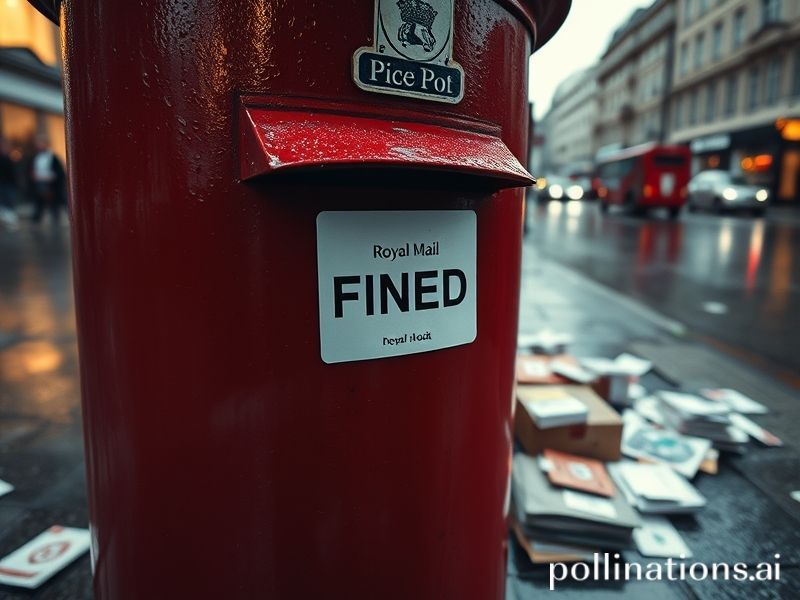Royal Mail Fined: When Snail Mail Gets a Speeding Ticket
**Royal Mail Fined: When Snail Mail Gets a Speeding Ticket**
Alright, folks, buckle up! We’re diving into a story that’s got the internet buzzing like a postman on a coffee break. Royal Mail, the UK’s beloved (and sometimes beleaguered) postal service, has found itself in hot water, and the fines are adding up faster than unpaid parking tickets in London. But why is this trending globally, and what’s the cultural significance of this postal predicament? Let’s break it down.
**The Plot Thickens**
Royal Mail has been slapped with a £50 million fine by Ofcom, the UK’s communications watchdog. The reason? They’ve been naughty, very naughty. The company has been accused of overcharging businesses for its services, essentially pulling a fast one on customers who were none the wiser. This isn’t just a case of pocket change; we’re talking about serious coin. Over a five-year period, Royal Mail allegedly overcharged businesses by a whopping £535 million. Yikes!
**Why the Fuss?**
You might be thinking, “So what? It’s just money.” But here’s the thing: Royal Mail isn’t just any old company. It’s a public service, a national institution, and a symbol of British resilience (remember those heroic posties delivering letters through snow, rain, and even a pandemic?). When a public service starts playing fast and loose with the rules, it’s a big deal. It’s like finding out your favorite teacher has been cheating on tests—it shakes your faith in the system.
**Cultural Context**
In the UK, Royal Mail is more than just a postal service; it’s a cultural icon. From the classic red postboxes to the familiar sight of postmen and women trudging up steep hills in all weather, it’s a part of daily life. The service has been around since 1516, making it older than the United States, and it’s seen its fair share of drama. But this fine is different. It’s not about lost letters or delayed parcels; it’s about trust.
**Social Impact**
The fine has sparked a wave of discussions about transparency and accountability in public services. It’s also got people talking about the future of Royal Mail in an increasingly digital world. With email and instant messaging taking over, is there still a place for snail mail? And if so, how can Royal Mail adapt without resorting to dodgy pricing tactics?
**Global Significance**
While this is a UK story at heart, it’s resonating globally for a few reasons. First, it’s a cautionary tale about corporate greed and the importance of regulation. Second, it’s a reminder that even in our digital age, traditional services still matter. And finally, it’s a story about trust—something that’s in short supply these days.
**The Bottom Line**
Royal Mail’s fine is more than just a headline; it’s a symptom of a larger cultural shift. As we move further into the digital age, we’re grappling with questions about the role of traditional services, the importance of transparency, and the need for accountability. And while the fine might not change the world, it’s a wake-up call for us all to pay attention to the services we rely on and the values they represent.
So, the next time you see a red postbox or a postman delivering your mail, take a moment to appreciate the institution. And remember, even snail mail can get a speeding ticket.







